
For the last two weeks, Democrats and even some Republicans have asked: Does Gov. Sarah Palin of Alaska have enough experience to hold the second-highest office in the nation, or the presidency if the need arises?
“I’m ready,” Ms. Palin answered without any hesitation in an interview with ABC News on Thursday, saying she had felt no doubt about accepting Senator John McCain’s offer to run as his vice-presidential nominee.
“I answered him yes, because I have the confidence in that readiness and knowing that you can’t blink,” Ms. Palin told her interviewer, Charles Gibson. “You have to be wired in a way of being so committed to the mission, the mission that we’re on, reform of this country and victory in the war.”
It was perhaps the most confident answer she supplied in a sometimes tense and generally probing interview with Mr. Gibson. It was her first session with a major news organization since she joined Mr. McCain’s Republican ticket two weeks ago and was immediately transformed from an obscure, first-term governor to a national political star.
At times visibly nervous, at others appearing to hew so closely to prepared answers that she used the exact same phrases repeatedly, Ms. Palin most visibly stumbled when she was asked by Mr. Gibson if she agreed with the Bush doctrine. Ms. Palin did not seem to know what he was talking about. Mr. Gibson, sounding like an impatient teacher, informed her that it meant the right of “anticipatory self-defense.”
At a separate event on Thursday, a deployment ceremony for her son Track and thousands of other soldiers heading to Iraq from Fort Wainwright, Alaska, Ms. Palin told them they would be fighting “the enemies who planned and carried out and rejoiced in the death of thousands of Americans.” It appeared to hark back to the disputed connections the Bush administration once made, but no longer does, between Iraq and the Sept. 11 attacks.
The interview took place on the seventh anniversary of the attacks. There were no obvious gaffes during the grilling by Mr. Gibson, who was facing pressure of his own to move Ms. Palin beyond her stump speech to reveal more about her readiness for high office and knowledge of world and domestic affairs.
Ms. Palin used the interview to reinforce the muscular foreign policy of Mr. McCain, saying she would not second-guess any military action Israel deems necessary to protect itself, warning Russia away from aggression against its neighbors and generally supporting President Bush’s approach to combating terrorism. But she also put some distance between the administration and the McCain team. “There have been blunders along the way,” she said.
Ms. Palin came into the interview with heavy preparation from Mr. McCain’s senior-most political and policy advisers, many of whom accompanied her home to Alaska, where Mr. Gibson will be holding a series of question-and-answer sessions with her through Friday afternoon.
The McCain campaign has kept Ms. Palin away from reporters and off the interview circuit traditionally traveled by vice-presidential nominees, but was under pressure to place her before a nationally recognized journalist. There were conflicting signals from the campaign about whether it would consider Mr. Gibson’s interview session the first of many or one of the few.
In choosing Mr. Gibson as Ms. Palin’s interlocutor, the campaign was going with a journalist known for having a mild manner but the gravitas to be taken seriously.
But the interview was hardly gentle, as Mr. Gibson pressed Ms. Palin for direct answers to some of the complicated foreign policy and national security issues facing the next administration.
Ms. Palin said the United States could not allow Iran to have nuclear weapons. As Americans, she said, “we do not have to stand for that.” She advocated a new round of sanctions.
But Mr. Gibson noted that threats of new sanctions had failed to stem Iran’s nuclear program so far and asked Ms. Palin whether she would back Israel if it were to seek to eliminate Iran’s facilities militarily.
“We are friends with Israel,” Ms. Palin said, “and I don’t think that we should second-guess the measures that Israel has to take to defend themselves and for their security.” Pressed, she twice more said she would not “second-guess” Israel.
Ms. Palin was clearly caught off guard when Mr. Gibson asked, “Do you agree with the Bush doctrine?” Seeking direction, and perhaps time to formulate an answer, Ms. Palin leaned back, smiled stiffly and said, “In what respect, Charlie?”
Initially unwilling to define the doctrine, Mr. Gibson said, “What do you interpret it to be?”
Ms. Palin asked, “His world view?”
Mr. Gibson said, “No, the Bush doctrine, enunciated September 2002, before the Iraq war.”
Ms. Palin responded: “I believe that what President Bush has attempted to do is rid this world of Islamic extremism, terrorists who are hell bent on destroying our nation.”
Mr. Gibson, finally defining the doctrine as “the right of anticipatory self-defense,” still struggled for a direct answer, asking twice more if she agreed with it before Ms. Palin answered: “Charlie, if there is a legitimate and enough intelligence that tells us that a strike is imminent against American people, we have every right to defend our country.”
Ms. Palin seemed to relax with Mr. Gibson later when she discussed a more familiar topic in a second interview, shown on “Nightline”: her support for oil exploration in the Arctic National Wildlife Refuge in her home state. Mr. McCain has opposed it.
But Ms. Palin seemed to move closer to her running mate’s position that global warming is caused by people, saying, “Man’s activities certainly can be contributing.” (She told Mr. Gibson she had never ruled that possibility out, but the conservative journal NewsMax recently quoted her as saying, “I’m not one, though, who would attribute it to being man-made.)
Mr. Gibson expressed exasperation with Ms. Palin toward the end of the first interview segment, shown on “World News” complaining that she had buried him in “a blizzard of words” as he sought a direct response to his question of whether the United States had the right to attack terrorists in remote areas of Pakistan without the Pakistani government’s approval.
This year, Mr. McCain criticized his opponent, Senator Barack Obama, for saying he would consider such strikes, calling it naïve and asking, “Will we risk the confused leadership of an inexperienced candidate who once suggested bombing our ally, Pakistan?”
Ms. Palin answered Mr. Gibson by saying, “We’re going to work with these countries.”
Becoming impatient during a prolonged exchange, Mr. Gibson finally asked, “Is that a yes?” to which Ms. Palin responded, “I believe that America has to exercise all options in order to stop the terrorists who are hell bent on destroying America and our allies.”
Ms. Palin was particularly forceful in discussing Russia, saying its incursion into Georgia earlier this summer was “unprovoked,” a description that some foreign policy analysts have argued with. But, pronouncing the name of the Georgian president, Mikheil Saakashvili, with perfect pitch, she avoided a question that has bedeviled experts on Eastern European affairs: what the United States can or should do to “restore Georgian sovereignty” over its separatist regions.
“We’ve got to keep an eye on Russia,” she said, then repeated the phrase.
She expressed full support for the induction of Georgia and Ukraine into the NATO alliance, which has prompted strong Russian protest. The position is shared by Mr. McCain, Mr. Obama and Mr. Obama’s running mate, Senator Joseph R. Biden Jr.
Ms. Palin acknowledged that such membership could require the United States to join militarily in defense of Georgia if Russia — her state’s “next-door” neighbor — was to move against it again.
Ms. Palin said that before a trip to the Middle East and Germany in 2007, her only foreign travel had been to Mexico and Canada, And, she acknowledged, she had not met any foreign leaders, though she said — in an apparent veiled reference to Mr. Biden — “We’ve got to remember what the desire is in this nation at this time. It is for no more politics as usual and somebody’s big fat résumé that maybe shows decades and decades in that Washington establishment, where, yes, they’ve had opportunities to meet heads of state.”
The New York Times
http://www.nytimes.com/2008/09/12/us/politics/12palin.html?_r=1&hp&oref=slogin



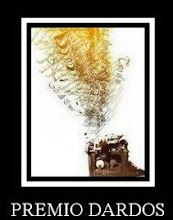











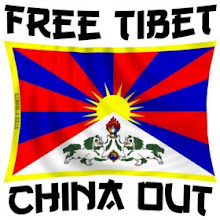










.jpg)
























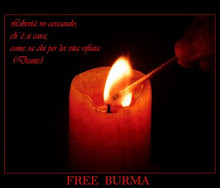

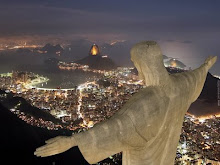




















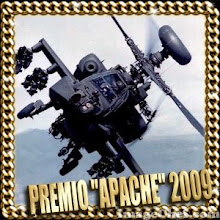

















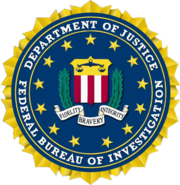



















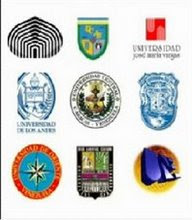


No hay comentarios:
Publicar un comentario